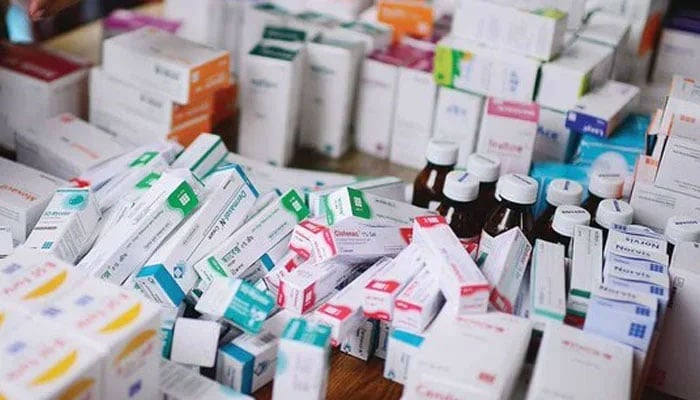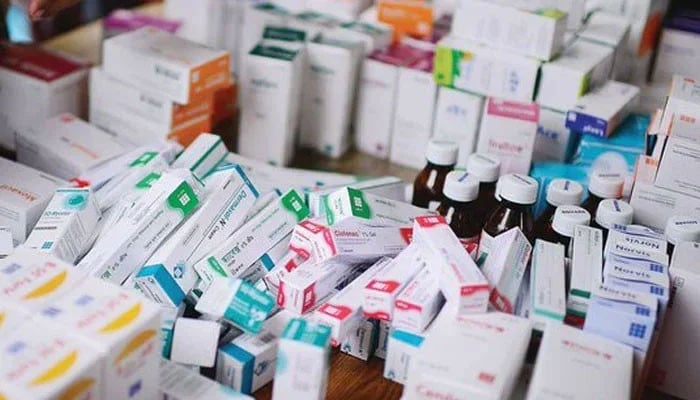
A representational image showing different medicines. — APP/File
ISLAMABAD: Prices of more than a hundred commonly used medicines have increased by an average of 32 percent since February 2024, when the caretaker government allowed pharmaceutical companies to set their own prices under a deregulation policy, federal health ministry officials said while quoting the results of an independent survey ordered by Prime Minister Shehbaz Sharif.
Officials say that despite rising public anger, the policy is expected to stay in place for now, with a final decision to be taken by Prime Minister Shehbaz Sharif.
An independent national survey ordered by the prime minister in response to widespread complaints has confirmed that at least 100 non-essential medicines, roughly a quarter of all deregulated products, have seen a price jump of almost one third within eight months. The nationwide exercise aims to verify the impact of deregulation on affordability and availability.
The Pakistan Pharmaceutical Manufacturers Association (PPMA), however, disputes the findings. It claims the survey reflects an average rise of “around 15 percent” and that if the roughly 3 percent increase due to the launch of new products is excluded, the actual two-year increase stands at “nearly 12 percent”.
Under the previous pricing formula, companies could raise prices by a maximum of 7 percent per year in line with the Consumer Price Index. Had the old system continued, prices would have risen 14 percent over two years, compared to the recorded 32 percent under deregulation.
Officials said the Special Investment Facilitation Council (SIFC), which initiated the policy, maintains that the rise is not excessive when seen in the context of inflation and currency depreciation. Even so, they confirmed that the prime minister will take the final decision after reviewing complete survey data. Half of all deregulated products have so far been assessed. A second phase will expand the review to cover an additional 50 percent of medicines to ensure a fair national sample before recommendations are submitted to the government.
A senior official at the Ministry of National Health Services said the prime minister wants clarity on whether deregulation has improved availability or merely fuelled price hikes. “We need evidence before making any political or administrative decision,” he said.
But many households now report struggling to afford basic medicines, including antibiotics, painkillers and drugs for chronic illnesses. Provincial health departments have also reported patchy supplies as distributors adjust stocks in anticipation of further increases. Despite the survey’s early findings pointing to a sharp upward trend, officials say there is no immediate plan to reverse the framework. “SIFC still believes deregulation is necessary for long term investment in local manufacturing,” an insider said.
Health experts believe the government may opt for a revised model rather than a full rollback, possibly through tiered pricing, stronger oversight or a partial cap on certain categories to balance industry needs with public affordability.

